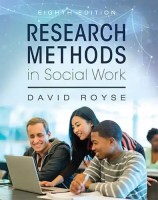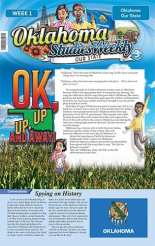2020 Textbook award-winning insight (Part 5): Longevity
 We recently reached out to winners of the 2020 TAA Textbook Awards and asked them to answer some questions about why they made the decision to write their textbook, strategies they used for successful writing, advice on contracts, editing, marketing, co-authoring, and more. We will be sharing their answers in a series of posts over the next few weeks.
We recently reached out to winners of the 2020 TAA Textbook Awards and asked them to answer some questions about why they made the decision to write their textbook, strategies they used for successful writing, advice on contracts, editing, marketing, co-authoring, and more. We will be sharing their answers in a series of posts over the next few weeks.
This final installment of the five-part series focuses on achieving long-term success for a manuscript.
What do you believe has been the key to your textbook’s longevity in the market?
 Braja Das, co-author of the 2020 McGuffey Longevity Award winner, Principles of Foundation Engineering, 9e: “Two McGuffey awards. I never had a real competition. I just update it based on the newest developments.”
Braja Das, co-author of the 2020 McGuffey Longevity Award winner, Principles of Foundation Engineering, 9e: “Two McGuffey awards. I never had a real competition. I just update it based on the newest developments.”
David Hall, co-author of the 2020 Textbook Excellence Award winner, Oklahoma Studies Weekly – Our State, 7th Volume, 2e: “Making constant minor tweaks per teachers requests.”
 David Royse, author of the 2020 McGuffey Longevity Award winner, Research Methods in Social Work, 8e: “If the book is received well, there is a snowball effect of it rolling down the hill and picking up more adopters. If it doesn’t have a good debut, it is hard to build more readers. Some of this is just plain luck. For instance, if 2 or 3 new books on the same topic come out at the same time, your book will get less attention.”
David Royse, author of the 2020 McGuffey Longevity Award winner, Research Methods in Social Work, 8e: “If the book is received well, there is a snowball effect of it rolling down the hill and picking up more adopters. If it doesn’t have a good debut, it is hard to build more readers. Some of this is just plain luck. For instance, if 2 or 3 new books on the same topic come out at the same time, your book will get less attention.”
Michael Solomon, author of the 2020 McGuffey Longevity Award winner, Consumer Behavior: Buying, Having and Being, 13e: “1. The book always reflects current research. 2. A very conversational writing style that is very accessible to students.”
 Michael Sullivan, author of the 2020 McGuffey Longevity Award winner, Precalculus, 11e: “The biggest factor is listening carefully to users and explaining why a particular suggestion was not followed. Keeping abreast of changes is crucial.”
Michael Sullivan, author of the 2020 McGuffey Longevity Award winner, Precalculus, 11e: “The biggest factor is listening carefully to users and explaining why a particular suggestion was not followed. Keeping abreast of changes is crucial.”
What advice can you share for new textbook authors who would like to see their textbook go into multiple editions?
Das: “Write it for the students. Stay updated all the time. Write easy to read textbooks.”
 Hall: “Don’t ignore the product, revisit it yearly to see what can be improved.”
Hall: “Don’t ignore the product, revisit it yearly to see what can be improved.”
Royse: “Keep up with what the competition is doing; look for ways to keep your book fresh and innovative.”
 Solomon: “Don’t rest on your laurels. Approach each new edition like it’s your first.”
Solomon: “Don’t rest on your laurels. Approach each new edition like it’s your first.”
Sullivan: “The next edition is in the hands of your publisher. Write a good text that sells well in the marketplace, and you will be asked to revise it.”
Have you developed a succession plan for your book beyond your direct involvement as an author?
Hall: “No, our product is also very dependent on when standards are updated in a state which can be anywhere from 5-10 years or so.”
 Paul Insel, co-author of the 2020 McGuffey Longevity Award winner, Core Concepts in Health, 16e: “My daughter will take over the book and continue to revise it.”
Paul Insel, co-author of the 2020 McGuffey Longevity Award winner, Core Concepts in Health, 16e: “My daughter will take over the book and continue to revise it.”
Solomon: “Not yet, but starting to think about it.”
Be sure to check out the advice in other articles in this series:
- 2020 Textbook award-winning insight (Part 1): Purpose, timeline, and results
- 2020 Textbook award-winning insight (Part 2): Strategies, environment, and lessons
- 2020 Textbook award-winning insight (Part 3): Contracts, editing, and marketing
- 2020 Textbook award-winning insight (Part 4): Co-authoring
Please note that all content on this site is copyrighted by the Textbook & Academic Authors Association (TAA). Individual articles may be reposted and/or printed in non-commercial publications provided you include the byline (if applicable), the entire article without alterations, and this copyright notice: “© 2024, Textbook & Academic Authors Association (TAA). Originally published on the TAA Blog, Abstract on [Date, Issue, Number].” A copy of the issue in which the article is reprinted, or a link to the blog or online site, should be mailed to Kim Pawlak P.O. Box 337, Cochrane, WI 54622 or Kim.Pawlak @taaonline.net.

